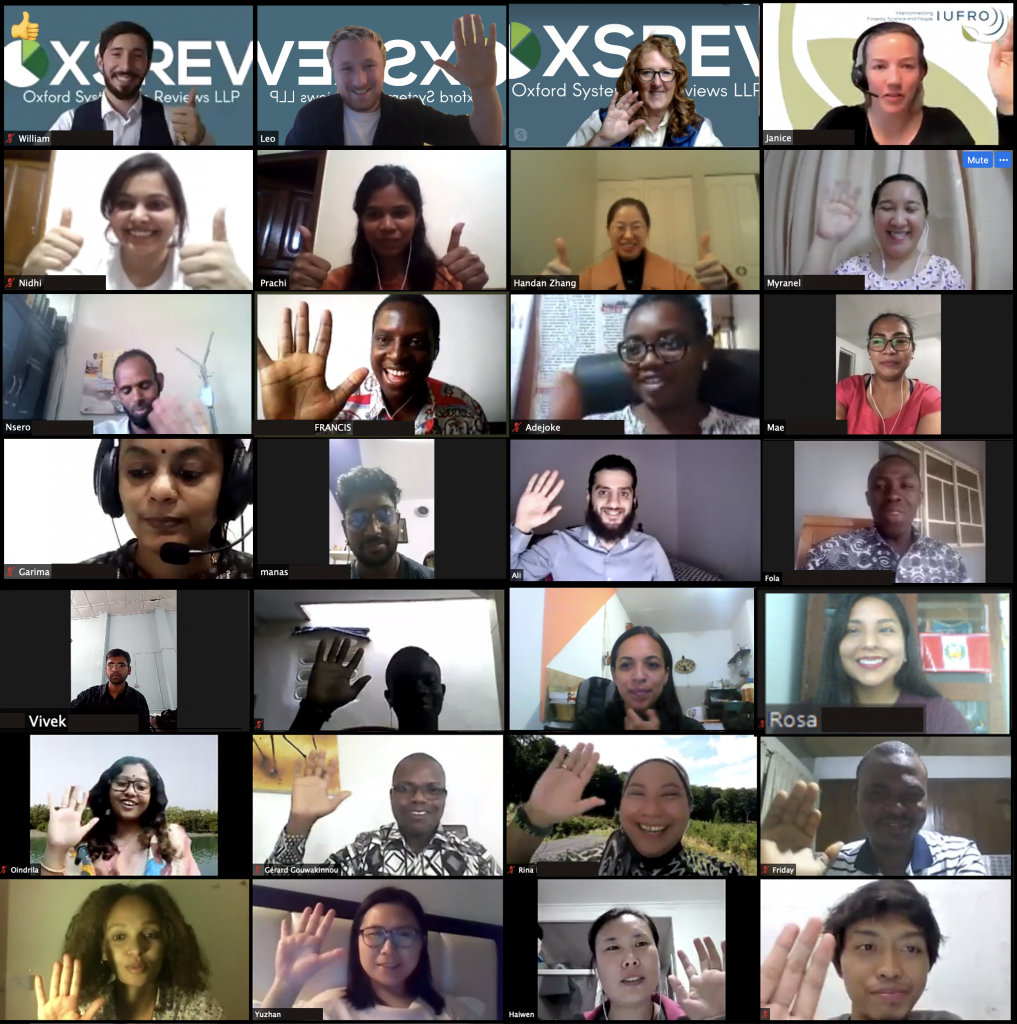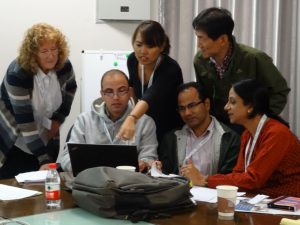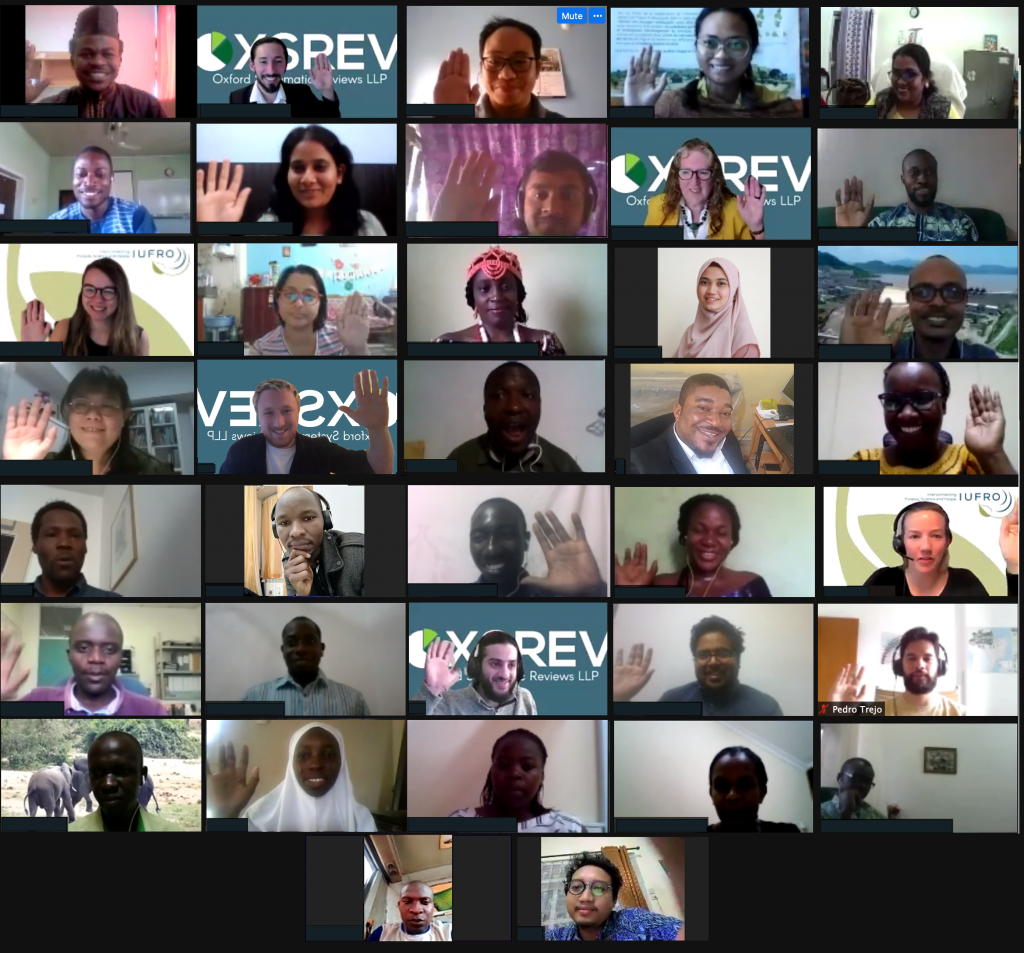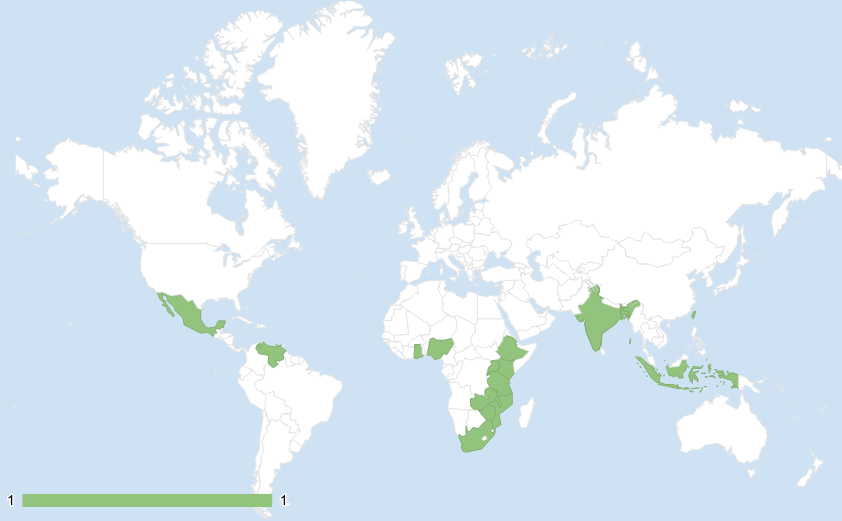Doctor Recommended: Systematic Evidence Evaluation to arrive at the best decision
Doctor Recommended: Systematic Evidence Evaluation to arrive at the best decision
Systematic reviews originally emerged in the field of medical science to synthesize and evaluate all available evidence to arrive at the best (most informed) decision. This process, which brings together information from a range of sources and disciplines, also plays an important role in informing debates and decisions on forests and environment. With a view to improving forest policy and practice, the online course “Systematic Evidence Evaluation on Forest Landscape Restoration” was organized as a collaboration between IUFRO’s Special Programme for Development of Capacities (IUFRO-SPDC) and Oxford Systematic Reviews (OXSREV), from March 22nd-26th, 2021.
IUFRO-SPDC strengthens skills needed in an increasingly complex world (online)
IUFRO-SPDC strengthens skills needed in an increasingly complex world (online)
The online course “Systematic Evidence Evaluation on Forest Landscape Restoration” was organized as a collaboration between IUFRO’s Special Programme for Development of Capacities (IUFRO-SPDC) and the University of Oxford in the UK, and took place between the 12th and 16th of October 2020.

The subject of systematic evidence has become increasingly important in the last decade. The world is becoming more and more complex, and that asks for adequate policy making and smart management decisions. This course gives way to methods of evidence evaluation that support and encourage appropriate and accurate policy decisions and actions that can be taken about forests and forest-related land use.
Read more…Systematic Review in Forest Science – Learning from Traditional Forest Knowledge
Report by Dr Gillian Petrokofsky, University of Oxford, 23 October 2016
http://www.iufro.org/science/special/spdc/actproj/tws-beij/
Aims of the training

Dr. Gillian Petrokofsky, Biodiversity Institute Oxford, and trainees. Photo: Eva Schimpf, IUFRO-SPDC
The 3-day training workshop introduced participants to systematic review as a powerful tool in evidence synthesis.
The tool is used to improve decision-making and any policy formulation that draws on scientific evidence. The workshop explored examples from forestry and natural resource management.
Participants applied techniques of systematic review to develop mini-Protocols focused on how traditional knowledge forest could inform current forest management strategies/policy. Read more…


